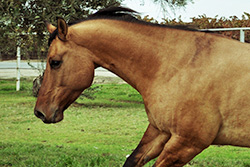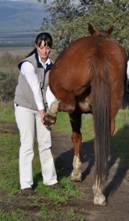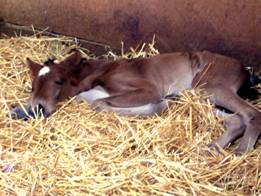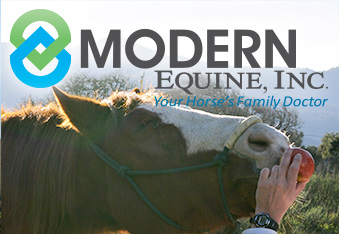|
 We are dedicated to educating our clients and to providing current information on equine health. Please give us a call at (831) 345-4895 if you have any questions or concerns about your horse. We are dedicated to educating our clients and to providing current information on equine health. Please give us a call at (831) 345-4895 if you have any questions or concerns about your horse.
The articles below will give you some information on preventative care and the most common conditions that can affect your four-legged friend.
It is late at night and there is something wrong with your horse. He is not acting right. You are not sure whether he needs immediate attention and you should call your veterinarian, or should just wait until the next morning? It is often difficult to tell for horse owners how serious a condition is. You can be assured that you are always welcome to call us for advice and we can help you decide what's best and if the horse has to be seen immediately. You can also check out this article on the most common emergency situations that arise frequently and require immediate veterinary attention.
Colic in Horses
The term "colic" simply means abdominal pain. There are many causes of colic and symptoms range from very mild to violent. A horse with colic will show varying symptoms depending on the cause, how long it has been present and the stoicism of the patient. Read more >
First Aid for Wounds
Horses and ponies often receive cuts and other wounds particularly on their face and legs. Many require just simple first aid measures, while others require the attention of your veterinarian. Simple first aid measures can help reduce the risk of infection or further damage. Read more >
 Eye Emergencies Eye Emergencies
Injuries to the eye and surrounding areas of the head and face are relatively common in horses and ponies due to their inquisitive nature and as a result of 'arguments' with each other and with structures such as stable doors, fence posts, trees, etc. Foreign material such as grass seeds, thorns, etc., may cause abrasions to the cornea (surface) or may even puncture the eye. Read more >
Arthritis in Horses
Arthritis is an inflammation of a joint or joints that causes pain and stiffness. Normal, painless joint function is essential for an athletic animal and for this to occur, each component of the joint structure must be healthy and working properly. Read more >
Equine Cushing's Disease
Also called pituitary pars intermedia dysfunction (PPID), is a complex condition associated with abnormal function of a small, hormone-producing organ, the pituitary gland, that lies at the base of the brain. The cause is not fully known but currently it is thought that as part of the aging process, some horses develop enlargement of part of the pituitary gland (the pars intermedia), which then produces excessive amounts of a range of hormones important in controlling the body. Read more >
 Foaling Foaling
The expected birth of a foal from a favorite mare is an exciting but worrying time for many horse owners. Ideally, help and advice should be sought from your veterinarian or someone with experience in foaling mares, in good time before the event. Read more >
Management Measures to Control Disease on Your Farm
Good management is the key to preventing or controlling the spread of disease. Good management practices aim to keep horses in good condition and in a healthy environment, in order to reduce the risk of introduction and spread of disease, to identify individuals especially at risk and to promote rapid recovery if disease does occur. Read more >
Equine Dentistry
The process of removing potentially harmful sharp points and edges from the cheek teeth is called 'floating'. This is undertaken on a regular basis depending on the age of the horse and the health of the mouth. Read more >
Vaccination in Horses
A vaccine is a specially-made medicine that stimulates the body to produce an immune response to a particular infection. In most cases a course of vaccine needs to be given in order to stimulate the body to produce an effective and lasting immune response. This usually means two initial doses followed by booster doses at regular intervals thereafter. Read more >
Deworming in Horses
Parasitic worms live in the intestines of horses and they are not easily detected in the manure. Small numbers of worms can be tolerated, causing no effect on well-being. Larger worm burdens can cause a range of problems including ill thrift, diarrhea, colic and death. Read more >
|




 We are dedicated to educating our clients and to providing current information on equine health. Please give us a call at (831) 345-4895 if you have any questions or concerns about your horse.
We are dedicated to educating our clients and to providing current information on equine health. Please give us a call at (831) 345-4895 if you have any questions or concerns about your horse.  Eye Emergencies
Eye Emergencies